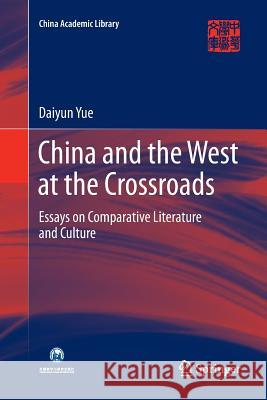China and the West at the Crossroads: Essays on Comparative Literature and Culture » książka
topmenu
China and the West at the Crossroads: Essays on Comparative Literature and Culture
ISBN-13: 9789811093326 / Angielski / Miękka / 2018 / 388 str.
Kategorie:
Kategorie BISAC:
Wydawca:
Springer
Seria wydawnicza:
Język:
Angielski
ISBN-13:
9789811093326
Rok wydania:
2018
Wydanie:
Softcover Repri
Ilość stron:
388
Waga:
0.55 kg
Wymiary:
23.39 x 15.6 x 2.08
Oprawa:
Miękka
Wolumenów:
01











